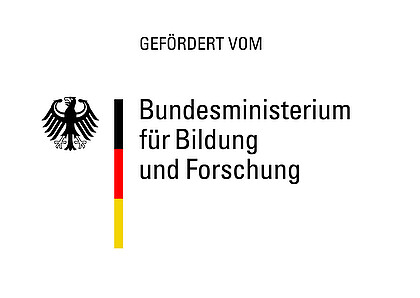The BMBF is funding an interdisciplinary accompanying project at the Zittau/Görlitz University of Applied Sciences.

Around 80 percent of the 4.1 million people currently in need of care in Germany are cared for in their own homes. The main burden of this care is borne by relatives and other informal caregivers. To relieve the burden on these groups, there is increasing discussion about how digital services can provide support with care. However, socio-technical innovations can only provide real added value if they meet the diverse needs of the target group of informal carers as well as the specific care settings - a challenge that requires the early involvement of informal carers in the development of technological approaches.

The project "Participation and co-creation for innovative technologies for informal carers and care communities", PiTiPS for short, funded by the Federal Ministry of Education and Research (BMBF), is dedicated to addressing this need. Led by the Institute for Multimedia and Interactive Systems (IMIS) at the University of Lübeck, the PiTiPS project combines expertise from research and practice (social, care and behavioral sciences, gerontology, participation and technology research) with the perspective of representatives of informal caregivers in order to systematically integrate the diversity of informal care into research and design processes . This transdisciplinary approach is intended to identify the prerequisites for the successful integration of informal caregivers in a wide variety of care contexts, such as the care of chronically ill children, care in rural areas or care by young adults, and to directly support other research and development projects in this integration.

"Involving and empowering informal carers more in the development of support technologies relevant to them is highly relevant in a society that wants to shape both demographic and technological change in the interests of carers and vulnerable groups. We are delighted to be able to contribute to this with the Institute for Health, Ageing, Work and Technology and will focus in particular on informal carers in rural areas and older people." Dr. Cordula Endter
”
"Participatory and co-creative design processes are an essential feature of our future working world and society, which will also play an increasingly important role in the care of older people. Co-creation means that the use of technical innovations is researched on the basis of the needs and preferences with the active involvement of the target group. Technical innovation is important, but the focus is always on people! The benefit for people and society is the decisive criterion for the success of co-creative research." Prof. Dr. Andreas Hoff
”During the four-year project period from May 2022 to January 2026, the PiTiPS project will accompany various collaborative projects from the research context of informal care in order to strengthen approaches and methods for the participation of informal caregivers in technology innovation. To this end, the project team is pursuing a dual strategy: (1) providing technical infrastructures and scientific knowledge and (2) analyzing participation approaches in order to further develop theoretical models and methods and derive recommendations for action. Participatory formats and co-design, digital and analog, are tested and implemented in two so-called "participation labs", i.e. laboratories for the implementation of participation methods. The focus here is on active collaboration between the target group, i.e. informal caregivers, and experts from the field of research in order to try out and further develop methods and approaches in various workshops. In addition, a digital "participation hub" serves as a platform for initiating and mapping joint learning processes. The consultation and support process is supplemented by joint research workshops with the collaborative projects from all over Germany.
The GAT Institute 's project partners are the Institute for Multimedia and Interactive Systems and the Institute for Social Medicine and Epidemiology at the University of Lübeck, Furtwangen University, the Bavarian Research Center for Digital Care at Kempten University of Applied Sciences and "wir pflegen - Interessenvertretung und Selbsthilfe pflegender Angehöriger e.V.".

